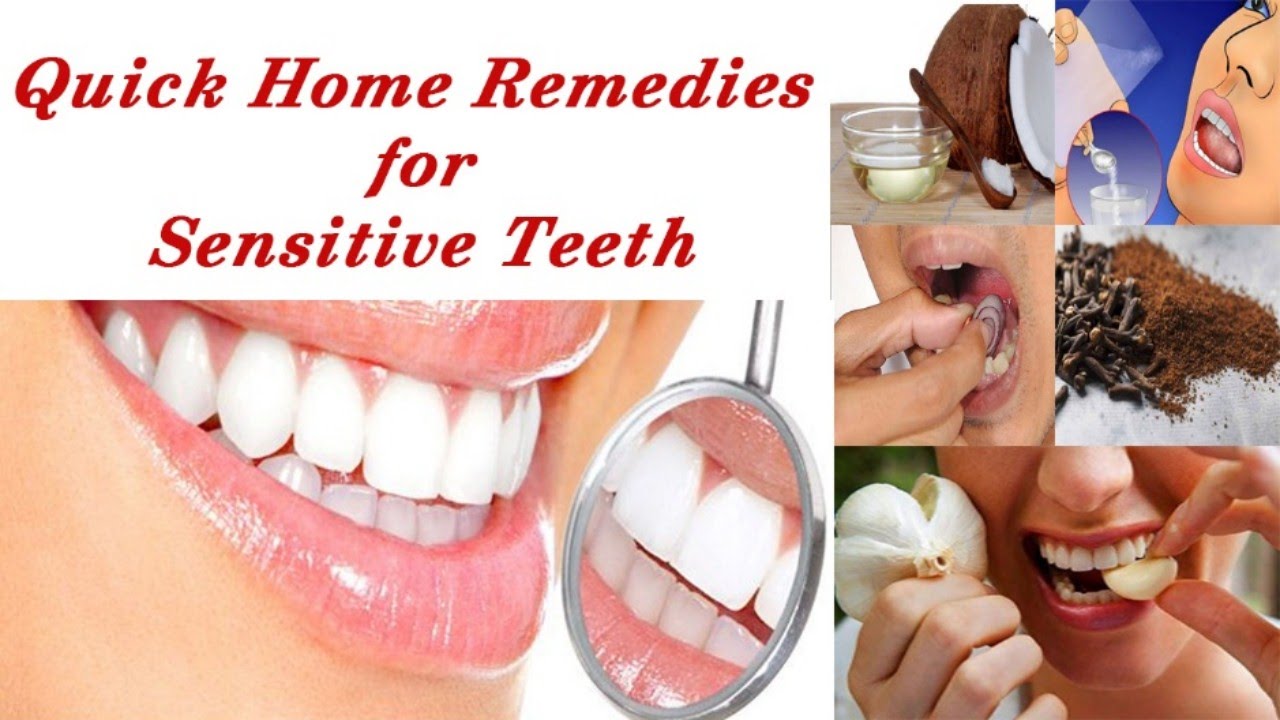Do You Have Sensitive Teeth? How To Treat Tooth Sensitivity And Stop The Pain With Natural Treatments
Teeth roots, which aren’t covered by hard enamel, contain thousands of tiny tubules leading to your tooth’s center (the pulp). These dentinal tubules (or channels) allow stimuli — for example, hot, cold, or sweet food — to reach the nerve in your tooth, which results in the pain you feel.
What causes sudden tooth sensitivity?
Many factors can lead to the development of sensitive teeth, including:
Gum recession: Some people are genetically prone to the thin gum tissue. Other people develop gum recession as a result of periodontal disease. With gum recession, your gum tissue pulls away from your teeth, exposing the roots.
Gum disease: Inflamed and sore gum tissue may cause sensitivity because of the loss of supporting ligaments, which exposes the root surface that leads directly to the nerve of the tooth.
Cracked teeth: Chipped or broken teeth may fill with bacteria from plaque and enter the pulp, causing inflammation. (Home Remedies to Fix a Cracked or Broken Tooth)
Teeth grinding: Grinding or clenching your teeth may wear down the enamel and expose underlying dentin.
Teeth whitening products: These products are major contributors to teeth sensitivity. If you want to brighten your smile, talk to a dentist about teeth whitening for sensitive teeth. However, here is a very safe way to whiten your teeth with Activated Charcoal.
Age: Teeth sensitivity is highest between the ages of 25 and 30.
Plaque buildup: The presence of plaque on the root surfaces can cause sensitivity.
Mouthwash use: Some over-the-counter mouthwashes contain acids that can worsen teeth sensitivity if you have exposed dentin (the middle layer of the tooth). The acids further damage the dentin layer of the tooth. If you have dentin sensitivity, ask your dentist about the use of a neutral fluoride solution.
Acidic foods: Regular consumption of foods with a high acid content, such as citrus fruits, tomatoes, pickles, and tea, can cause enamel erosion.
Recent dental procedures: People can get sensitive teeth after fillings, teeth cleanings, and dental restoration placement. Sensitivity caused by dental procedures is temporary and usually disappears in four to six weeks.
In addition, complaints of sensitive teeth are also frequently encountered, where patients experience intense, momentary pain while drinking something cold or sweet. Enamel loss, which affects the tooth's exterior protective layer, is the source of this. Using sensitive toothpaste that is readily accessible on the market will help you to solve this.
How To Treat Tooth Sensitivity And Stop The Pain With Natural Treatments
One frequent and sometimes uncomfortable oral health issue is sensitive teeth. Here are some natural treatments for sensitive teeth.
Every time you bite into something, do you experience a sharp and piercing sensation going deep down to the nerve endings of your tooth? Tooth sensitivity is a common dental problem that affects a lot of people. If your teeth pain every time you eat something cold, or hot or drink acidic drinks, then that means you have sensitive teeth. It can be discomforting, which is why you need to get treated as soon as possible.
Home Remedies For Sensitive Teeth
Here are some home remedies you can try to get some relief.
Saltwater is one of the most effective solutions used to treat tooth sensitivity. In fact, it is one remedy that is used for other dental problems as well. Salt is an antiseptic and helps reduce inflammation. All you need to do is gargle with salt water twice every day to alleviate the pain.
How to use: Mix half a teaspoon with a glass of lukewarm water and mix well. Swish the solution in your mouth for about 30 seconds and spit it out.
Honey contains antibacterial, antibacterial, and antiseptic properties. It helps speed up healing and reduce pain, swelling, and inflammation. It is an effective remedy that can help reduce pain from sensitive teeth.
How to use: Take a tablespoon of honey and mix it with warm water. Now, rinse your mouth using water to reduce the pain from sensitive teeth.
SEE MORE:Health Benefits Of Honey
3. Turmeric
Turmeric contains a compound called curcumin, which contains anti-inflammatory properties that enhance wound healing. It is a good home remedy for tooth sensitivity and can also be used to treat digestive problems.
How to use: One way to use it is by massaging ground turmeric on the teeth. You can also make a paste using 1 teaspoon of turmeric, half a teaspoon of salt, and half a teaspoon of mustard oil. Apply the paste to the teeth and gums. Do this two times every day for pain relief.
4. Green Tea
Green tea contains antioxidants and anti-inflammatory properties that provide many health benefits, including oral health.
How to use: Prepare green tea and use it as a mouthwash twice a day to strengthen teeth and reduce inflammation. (18 Good Reasons Why You Should Drink Green Tea )
Studies have shown that vanilla extract contains anti-nociceptive properties that reduce pain associated with tooth sensitivity.
How to use: Take a few drops of vanilla extract and apply it to the sensitive gums for 3-5 minutes using a cotton pad. You can do this multiple times a day to treat sensitive teeth.
Additional Tips
To lessen the pain, it is important to take some preventative precautions in addition to adopting home remedies.
Brush your teeth carefully with a toothbrush with soft bristles.
Never clench your teeth.
Reduce your intake of acidic foods.
Maintain proper dental hygiene.
To monitor your oral health, schedule regular appointments with your dentist.











